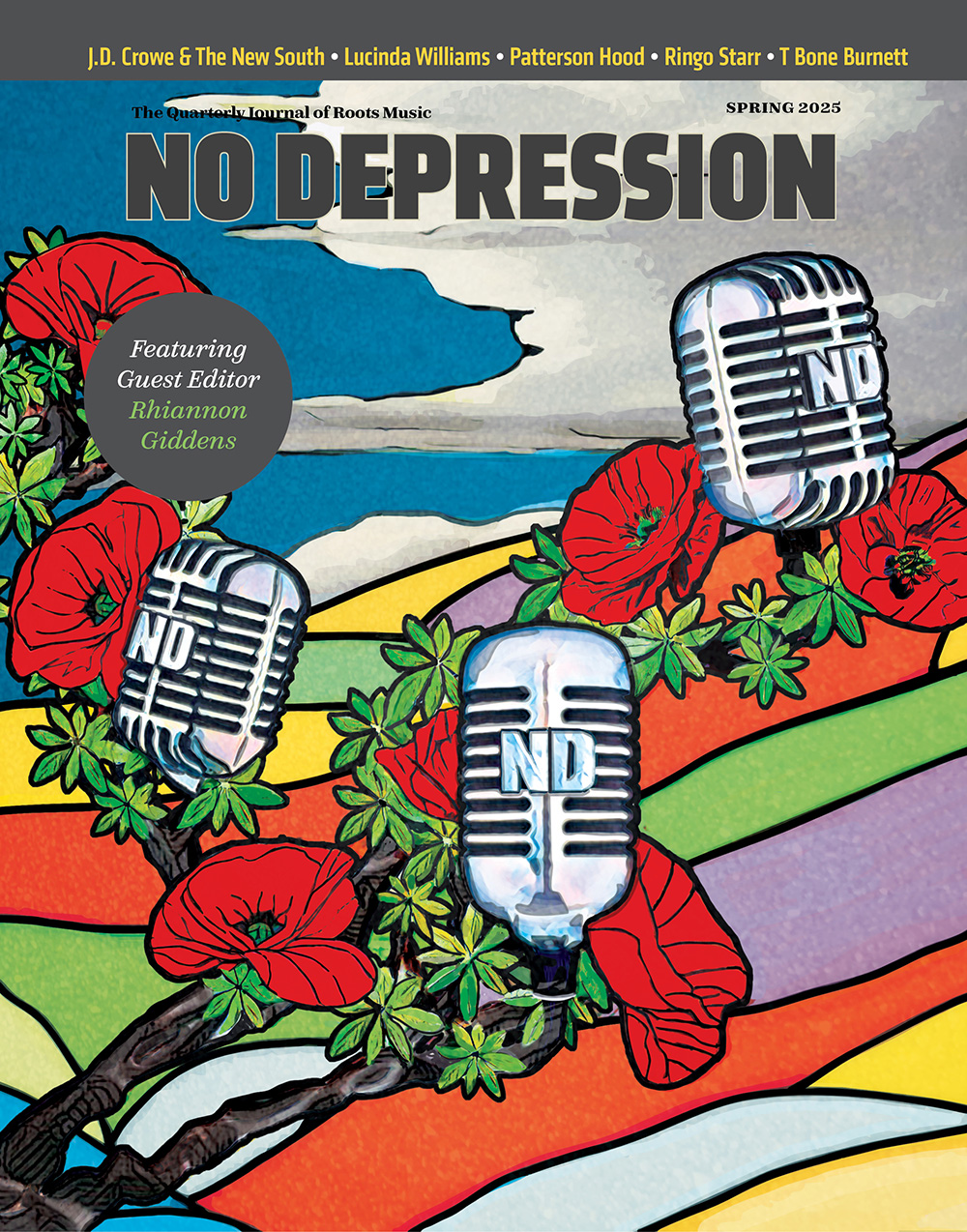The Kruger Brothers – Plain & Fancy
The musical range and versatility of vision the Kruger Brothers have brought to American music, from the bluegrass and Appalachian music they came to America to grow with, through their association with Doc Watson and Merlefest, to their building of a conscious fusion bringing their European roots in classical musicianship combined with their early lives busking as rock and folk musicians in the Swiss home, Germany, and around Europe. Today, they play everywhere from bluegrass festivals to sold out concert halls, as a trio and accompanied by symphony orchestras around the world.
We first saw The Kruger Brothers at a Wednesday evening jam on the grounds of Wilkes Community College sponsored by the Wilkes Acoustic Folk Society. Small jams were scattered around outside a fairly large tent, but a goodly crowd assembled surrounding about ten people gently dominated by three people, yet welcoming local musicians from age eight or so to well into their sixties. I was amazed at Jens Kruger’s versatility on the banjo, along with his personal warmth, and the encouragement he was giving to young musicians sitting in with the jam. Later, as we came to know the Krugers, we came to see how they worked to feature young up-and-comers, like the Snyder Family, whom they featured at their festival Carolina in the Fall in Wilkesboro, as well as older musicians who whose work has become epic in traditional and innovative music, men like the late Tut Taylor, the famous flat-picking Dobro man, and Maynard Holbrook, a marvelous primitive singer. Along the way, Jens won the $50,000 Steve Martin Prize for Excellence in Banjo and Bluegrass Music. Below is a clip featuring The Kruger Brothers with Maynard Holbrook & Laura Boosinger at Merlefest.
… and with Zeb Snyder at the Cook Shack, in Union Grove, NC. where there are breakfast shows on Saturday morning
Uwe {pronounced (YewVay) Kruger plays subtle, nuanced flat-pick guitar as well as powerful rhythm while singing in a resonant baritone voice. His warmth and quick good humor are always on display, as well as the excellence of his musicianship, as he and Jens (Yenz) trade leads within the complex configuration of the recent, more classical style or the traditional music they arrived with and thrived on. Here’s Uwe singing Sting’s “Fields of Gold” with which they often conclude one of their longer pieces combining their various styles.
The “third Kruger Brother” is New Yorker Joel Landsburg who, as a young bass player, moved to Europe where he played in a variety of rock and jazz bands, eventually joining the Kruger Brothers, as they toured Europe, before coming to the U.S. in order to live near Doc Watson and to soak up traditional mountain music. As is often true with the bass, Joel’s work is both understated and absolutely essential to creating the Kruger sound. It’s at the workshops they often present at festivals where the remarkable communication between these three men becomes apparent, as they move from discussion of their style and emphases into musical examples with no obvious communication, in perfect timing without seeming to count or kick off any segment. Watch Joel’s understated and amusing role in this older version of “Dueling Banjos” adapted from the movie Deliverance.
In recent years, the Kruger Brothers, led in this direction by composer Jens Kruger, have moved from their original emphasis on bluegrass and mountain music towards a fusion with their European roots in classical music, playing with the likes of the Kontras Quartet and select symphony orchestras like the Bangor, Maine, Symphony. In 2005, they released two collections called Carolina Scrapbook, containing collaborations with a plethora of traditional Carolina musicians. More recently, their work has featured work with titles like, “Roan Mountain Suite” and “Spirit of the Rockies” containing a mixture of lengthy symphonic interludes interspersed with lyrical, vocal story telling. The effect is electric for their audiences, who become entranced, moved to tears, and then enthusiastically cheer the always rousing finales. Here are selected segments from the “Appalachian Concerto” performed with the Kontras Quartet:
During the last few years, we’ve seen The Kruger Brothers in a variety of venues, where they have always been received with almost boundless enthusiasm from the regular crowds, while attracting day visitors who would not ordinarily be attending bluegrass festivals. From HoustonFest in that home of tradtional music, Galax, Virginia, to Strawberry Park in Connecticut they draw crouds. At IBMA last year, accompanied by a wonderful chamber orchestra, they filled the Red Hat Amphitheater with fans and newcomers who cheered for minutes at the close of their performance. With all that, my favorite song of theirs remains the following simple anthem to the simple joys of North Carolina.





